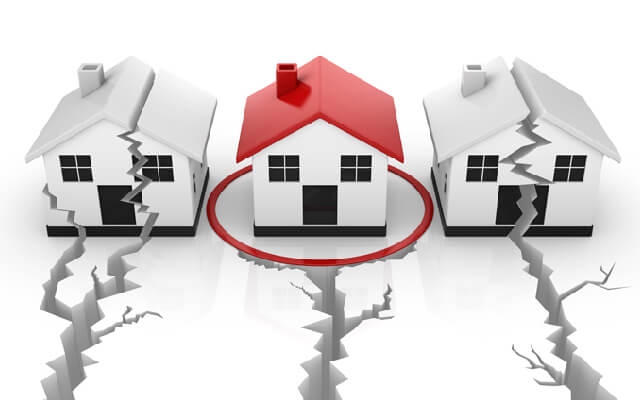A well-known saying goes, ‘Better safe than sorry.’ This adage holds true when it comes to homeowners insurance.
Homeowners insurance is a crucial safeguard against potential risks and damages that can befall one’s property. It provides coverage options that mitigate financial burdens in the face of unforeseen circumstances such as natural disasters, theft, or accidents.
Without this insurance, homeowners are exposed to significant risks and potential financial ruin.
Understanding the benefits and key factors involved in choosing homeowners insurance is essential for individuals seeking to protect their most valuable asset – their home.
The Importance of Homeowners Insurance
Homeowners insurance plays a crucial role in protecting homeowners from financial losses resulting from damages or losses to their property. It provides coverage for the structure of the home, personal belongings, and liability protection in case someone is injured on the property. This type of insurance is essential because it safeguards homeowners against unforeseen events that may result in significant financial burdens.
One common misconception about homeowners insurance is that it is an unnecessary expense. However, considering the potential costs associated with repairing or rebuilding a home after a fire, storm damage, or other covered peril, having insurance becomes a prudent investment. Furthermore, homeowners insurance can also provide additional living expenses if the home becomes uninhabitable due to these perils.
Another misconception is that homeowners insurance only covers damage caused by natural disasters. While it does cover damages caused by hurricanes, earthquakes, and floods (if specified), it also protects against other perils such as theft, vandalism, and accidental damage.
To explore cost-saving measures for homeowners insurance, individuals should consider increasing their deductibles. A higher deductible means lower premiums but be cautious not to set it too high that you cannot afford to pay out-of-pocket expenses if necessary. Additionally, bundling multiple policies with one insurer can often lead to discounts on premiums.
Coverage Options for Homeowners Insurance
An examination of coverage options reveals the diverse range of protection available under a homeowners insurance policy. Homeowners insurance policies typically offer different types of coverage to protect against various risks and perils. These coverage options can be tailored to meet the specific needs and preferences of homeowners.
Here are three key coverage options commonly found in homeowners insurance policies:
- Dwelling Coverage: This type of coverage protects the physical structure of the home itself, including walls, roofs, and other attached structures such as garages or porches. It provides financial reimbursement for repairs or rebuilding in case of damage from covered events like fire, storms, or vandalism.
- Personal Property Coverage: This coverage extends beyond the physical structure and includes personal belongings within the home, such as furniture, appliances, clothing, and electronics. It offers reimbursement for loss or damage due to covered incidents like theft or natural disasters.
- Liability Coverage: Homeowners insurance also provides liability protection if someone gets injured on your property or if you accidentally cause damage to someone else’s property. This coverage helps cover legal fees and medical expenses if you’re held responsible for bodily injury or property damage.
When considering homeowners insurance, it is important to understand that cost factors can vary depending on several variables such as location, size of the dwelling, age of the home, claims history, deductible amount chosen by policyholders among others. Evaluating these different types of coverages and understanding cost factors will help homeowners make informed decisions when selecting an appropriate insurance policy that suits their needs and mitigates potential financial risks associated with owning a home.
Understanding the Risks Without Homeowners Insurance
Understanding the risks associated with not having homeowners insurance requires a comprehensive analysis of potential financial burdens and legal liabilities that may arise in the absence of adequate coverage. Homeowners insurance provides protection against various risks, including natural disasters, which can have significant financial consequences.
Without homeowners insurance, individuals are exposed to substantial financial risks. In the event of property damage or loss due to fire, theft, or vandalism, homeowners would be solely responsible for covering the costs of repairs or replacement. These expenses can quickly escalate and place a heavy burden on individuals’ finances, potentially leading to severe financial strain.
Furthermore, without adequate coverage, homeowners are also vulnerable to legal liabilities. If someone is injured on their property and files a lawsuit for medical expenses and other damages, homeowners would be personally liable for these costs if they do not have liability coverage through their insurance policy. Legal fees alone can be financially crippling without proper protection.
Additionally, one key aspect of homeowners insurance is its provision for protection against natural disasters. Depending on the location, homes may be at risk from events such as hurricanes, earthquakes, floods, or wildfires. The cost of repairing or rebuilding after such disasters can be exorbitant. Homeowners insurance helps mitigate these financial burdens by providing funds to cover repairs or reconstruction.
Benefits of Having Homeowners Insurance
One significant advantage of having homeowners insurance is the financial protection it provides against unexpected events that could result in property damage or loss. Homeowners insurance offers several benefits that make it a worthwhile investment for homeowners.
Some of the benefits of having homeowners insurance include:
- Cost-saving benefits: Homeowners insurance can help save money by providing coverage for repairs or replacements in case of damage caused by covered perils, such as fire, theft, or natural disasters. Without insurance, these costs would have to be borne out-of-pocket, which could be financially burdensome.
- Peace of mind: Knowing that your home and belongings are protected can bring peace of mind. Homeowners insurance provides reassurance that if something were to happen to your property, you would have the financial means to recover and rebuild without facing significant financial strain.
- Liability coverage: Homeowners insurance not only protects against property damage but also includes liability coverage. This means that if someone were to get injured on your property and hold you responsible, your policy may cover legal fees and compensation for medical expenses.
Key Factors to Consider When Choosing Homeowners Insurance
When choosing homeowners insurance, it is important to carefully evaluate key factors that can significantly impact the coverage and benefits provided. Factors to consider include the cost comparison of different insurance policies.
Homeowners should compare premiums, deductibles, and coverage limits offered by various insurance providers. Premiums are the regular payments made to maintain coverage, while deductibles refer to the amount homeowners must pay out of pocket before their policy kicks in. It is crucial to strike a balance between affordable premiums and a reasonable deductible amount.
Additionally, homeowners should consider the coverage limits provided by each insurance policy. Coverage limits determine the maximum amount an insurer will pay for a covered claim. It is important for homeowners to assess their specific needs and ensure that their chosen policy provides sufficient coverage for potential risks such as fire damage, theft, or liability claims.
Other factors that should be evaluated include customer service reputation, financial stability of the insurer, and any additional endorsements or riders available for added protection.
Frequently Asked Questions
What Are the Different Types of Homeowners Insurance Policies Available?
The different types of homeowners insurance policies available include HO-1, HO-2, HO-3, and HO-5. These policies offer various coverage options such as property damage, personal liability, and additional living expenses in case of a covered event.
How Does Homeowners Insurance Protect Against Natural Disasters?
Homeowners insurance provides coverage limits to protect against natural disasters. In the event of such occurrences, policyholders can file a claim to receive financial assistance for repairing or rebuilding their homes.
Are Personal Belongings Covered Under Homeowners Insurance?
Personal belongings may be covered under homeowners insurance, subject to certain coverage limits. In the event of a claim, the policyholder must go through a claims process to receive compensation for any damages or loss incurred.
Can Homeowners Insurance Cover Liability in Case Someone Gets Injured on My Property?
Homeowners insurance can provide coverage for liability in case of injuries on the insured property. This coverage helps fulfill legal obligations and can assist in paying for medical expenses incurred by the injured party.
What Factors Influence the Cost of Homeowners Insurance Premiums?
Factors affecting homeowners insurance premiums include the location and age of the property, the amount of coverage desired, and the presence of certain risk factors. Tips for lowering costs may involve raising deductibles or implementing safety measures.
Conclusion
Homeowners insurance is crucial for protecting your investment and providing financial security in the event of unexpected accidents or disasters. It offers coverage options such as property damage, liability protection, and additional living expenses. Without homeowners insurance, you are exposed to substantial risks that could lead to significant financial losses. Having this insurance provides peace of mind and ensures that you have support when facing unforeseen circumstances.
When choosing homeowners insurance, it’s important to consider factors like coverage limits, deductibles, and the reputation of the insurance provider.
In conclusion, homeowners insurance is a necessary investment for every homeowner. According to a recent study by the Insurance Information Institute, around 95% of homeowners have some form of homeowners insurance in the United States. This statistic highlights the widespread recognition of its importance among homeowners nationwide. By obtaining homeowners insurance, you can protect your home and belongings from potential risks while securing your financial stability.











